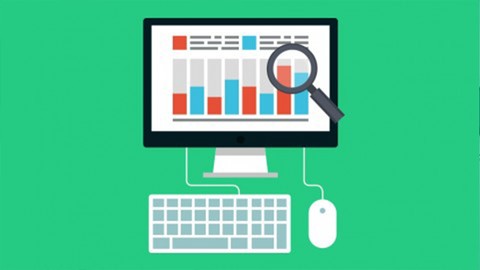
Impression: Production Perig – stockadobe.com
We are just at the beginning of the significant facts revolution. What was basically a prediction a couple many years back is occurring today. Not only are we building facts at exponential rates, we are starting off to figure out how to harness it — albeit at a nascent phase. The advancement of the cloud and the evolution of artificial intelligence (AI) technological know-how is enabling us to essentially see the benefit and advantages of what significant facts can provide. Now that we are capable to harness significant facts, we are also beginning to understand both public plan and commercial norms that are constraining culture from knowing the entire opportunity of this resource.
Why is significant facts these types of a significant deal?
Just about every heartbeat, every slight change in the temperature and every rotation all over the sunshine generates unimaginable amounts of facts. Until eventually not too long ago, on the other hand, we have been not capable to seize significantly of it. In fact, ninety{fb741301fcc9e6a089210a2d6dd4da375f6d1577f4d7524c5633222b81dec1ca} of the facts that exists today was developed in the previous two many years. This development will continue on for the foreseeable upcoming.
Greedy the sum of facts staying developed and captured today is next to impossible. Almost every new industrial program staying constructed today has hundreds, if not countless numbers of sensors. We are also retrofitting more mature devices with sensor technological know-how. Globally, discrete producing, transportation, and logistics industries are predicted to invest $forty billion every on IoT technologies in 2020 on your own. This is up from $10 billion in 2015.
Rolls-Royce, the premier motor maker is diving headfirst into this IoT revolution by putting sensors on its jet engines. A Boeing 787 with a Rolls-Royce motor generates an regular of 500GB of facts for every flight with lengthy-haul journeys developing quite a few terabytes. Sensors aren’t just for producing and industrial devices they are also staying deployed in agriculture. Today, farmers are utilizing robots, drones and wi-fi sensors to obtain facts about farm features and temperature. It is believed that by 2050, an regular farm will create four.one million facts factors every working day.
Facts overload — what to do with it all?
All the facts staying collected is not simply just going to squander. The convergence of superior-capability computing energy, advancement of AI, advancements in wi-fi technological know-how and the scale provided by cloud computing allow us to method these enormous facts troves. This means that all those terabytes of facts staying collected on the 787 motor generating a transatlantic flight are capable to be sent to a cloud computing facts centre, often in authentic time, and analyzed in milliseconds.
The final results created are staying utilized for practically every reason. By combining all this facts and utilizing artificial intelligence, Boeing can additional properly predict when mechanical pieces are going to fail, improving upon security and routine maintenance, as nicely as boosting the efficiency of the motor in the course of flight. It can also most likely be utilized by aviation regulators to watch security troubles.
In the agriculture place, utilizing artificial intelligence to merge facts sets, along with macro-temperature facts sets, farmers will be capable to deal with their drinking water usage additional proficiently, restrict the above use of fertilizer, and better predict crop yields. These facts sets could also enable governments plan their agriculture plan and increase how traders predict market place fluctuations.
Are we all set for the facts blitz?
As developments in technological know-how are generating all this possible, is culture all set for this phenomenon? Current legal guidelines and policies, as nicely as antiquated contractual interactions, can insert friction to the means to make the most of facts collected. No matter whether it be mental residence rights, privateness rights or the easy fact that facts exists in countless numbers of various formats, the roadblocks stopping powerful use of facts are everywhere you go.
My farming case in point highlights the opportunity challenge. Farmers are developing facts that would be extremely practical for both governments and researchers, and in lots of if not most scenarios these facts sets are additional valuable to the farmers when shared with some others than held to by themselves. At the identical time, what mechanisms can farmers use to safeguard any most likely commercially delicate information and facts, whilst however sharing the facts? And say that this facts is created offered, what are the principles and tactics by which the governing administration takes advantage of this facts to produce better public products and services? The identical issues arise from governing administration created macro-temperature facts. How can this facts be shared in these types of a way that private businesses and researchers can obtain it? In addition, if an entity shares its facts, how can we stimulate a common format for distribution?
Any modifications in plan or business enterprise interactions ought to choose a lengthy-term technique that maintains incentives to obtain facts, whilst continuing to increase how facts are processed. This is in addition to the more substantial societal troubles of protecting privateness and guaranteeing nefarious actors are not provided a platform to abuse these devices.

Tim Molino is a technological know-how specialist at Peck Madigan Jones in Washington, D.C. He offers plan, approach, and political advice on technological know-how-linked troubles, together with mental residence, antitrust, privateness, and cybersecurity. Molino’s tech plan know-how started when he was Chief Counsel to Senator, and latest Presidential applicant, Amy Klobuchar (D-MN) where he was accountable for advising the Senator on technological know-how-linked troubles. His other tech expertise contains staying a Plan Director for BSA | The Software program Alliance, the top software package trade association and a practicing patent attorney.
The InformationWeek community delivers alongside one another IT practitioners and marketplace gurus with IT advice, schooling, and thoughts. We try to emphasize technological know-how executives and subject matter gurus and use their understanding and ordeals to enable our viewers of IT … Look at Comprehensive Bio
A lot more Insights




